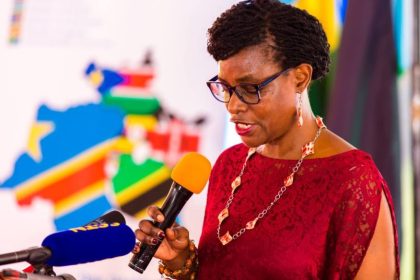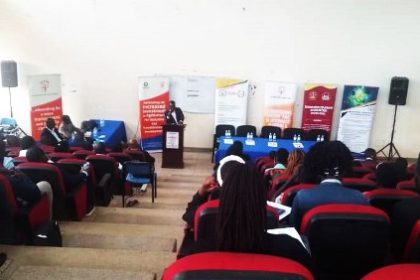StarTimes in $200m riddle with Zambian broadcaster

Topstar’s Leo Liao hosts Zambian legislators during an August 2017 visit during which he briefed them on the company’s objectives.
January 18—A joint venture between the Zambian state broadcaster and China’s Star Times has drawn the curiosity of the country’s financial ombudsman due to the oddity of borrowing $200 million without a repayment plan and now finding themselves defaulting on the first interest payment to China Eximbank.
According media reports the Auditor General says the government acquired a $232,181,138.85 loan from China Eximbank through Star Times without a repayment plan.
In May, 2016, Zambia National Broadcasting Corporation (ZNBC) and Star Times Communication Network Technology Company Limited of China (Star Times) entered into an agreement to invest in and establish a joint venture limited liability company called Topstar Communications Company Limited.
Essentially TopStar was given the job by the government to move the entire country from analogue to digital television reception, but which also gave an opportunity for StarTimes to market its products. StarTimes offers digital terrestrial television and satellite television services to subscribers.
For the first 25 years of the venture, ZNBC was to own 40% shareholding in the company while Star Times was to have 60%. After the 25 years, the shareholding would be revised such that ZNBC retains 40%, but Star Times will drop to 30% public institutions take up 20% while the general public will have the remaining 10%
However the AG queried how the venture could have gone ahead after ZNBC failed to pay up $40,000 as its initial stake in Topstar.
‘Article 4.1 stated that ZNBC was going to pay US$40,000 as initial capital contribution to Topstar. The Board of ZNBC observed at their meeting of 12th May 2016 that ZNBC did not have such money to contribute towards the venture. As at time of audit in September 2017, there was no evidence that the amount had been settled,” reads part of the report.
In his report, the AG states, ‘On 26th December 2016, the Government of the Republic of Zambia signed a Preferential Buyer Credit Loan Agreement with China Eximbank under which the bank was to avail to the government a credit facility of $232,181,138.85. The loan proceeds were to be used in the supply, delivery, installing and commissioning of a National Digital Terrestrial Television Broadcasting System in Zambia under Phase II and Phase III of the project’.
On July 15, 2017, Topstar failed to pay an interest of $2,321,811.39 which was due on the loan and provided no proper paper trail.
In August while hosting a parliamentary committee, TopStar chief executive officer Leo Liao said the company had started rolling out top set boxes for watching digital terrestrial television (DTT) countrywide. At the time 15 local television stations and 10 international ones were available.
The AG said best practice requires that prior to acquiring a loan, an organisation should have a strategy for repayment of the loan which among others should stipulate the time-frame for receiving loan proceeds, their application, expected cash inflows and outflows, net present values, rates of return, payback period and market viability of the expected revenue sources.
‘It was, however, observed that there was no such strategy regarding the loan that ZNBC acquired. In this regard, it was further observed that while the on-lending agreement required that the ZNBC and Topstar should make the first payment of interest on 15th July, 2017 amounting to $2,321,811.39, the project works were still ongoing, resulting in failure to honour the first interest payment.”
Nor has ZNBC and Topstar opened two Escrow bank accounts meant for collecting and transferring revenue generated under the project to be used for loan repayments, as stipulated in the agreement with China Eximbank.
The report states, ‘Going concern is the ability of an entity to continue existing and providing services in the foreseeable future. The status of ZNBC as at 31st December 2016 as a growing concern was questionable due to the following: the corporation recorded a net loss of K59,834,755 (nearly $12,000), the corporation had negative accumulated funds (negative equity) amounting to K1,078,529,639 (about $193,000), the corporation had negative cash flows from operating activities amounting to K2,499,943 ($500) and the corporation’s current liabilities were higher than its current assets’.
In sum, the ZNBC’s administrative costs were higher than the money the institution generated.

 Africans must resist being bulldozed in energy transition timetable debate
Africans must resist being bulldozed in energy transition timetable debate
 Standard Bank Group appoints new Chief Executive for Uganda Holdings
Standard Bank Group appoints new Chief Executive for Uganda Holdings
 TradeMark Africa introduces new App to limit EAC trade barriers
TradeMark Africa introduces new App to limit EAC trade barriers
 Employer hiring up during November as Stanbic PMI rises to 53.4
Employer hiring up during November as Stanbic PMI rises to 53.4
 Shell Club rewards first winners with brand new motorbikes in Mbale
Shell Club rewards first winners with brand new motorbikes in Mbale
 CSBAG roots for increased funding for renewable energy
CSBAG roots for increased funding for renewable energy
